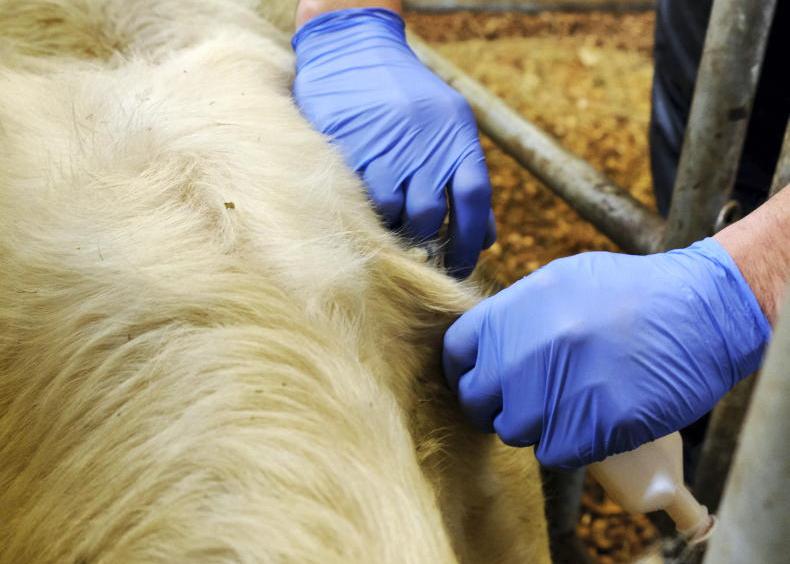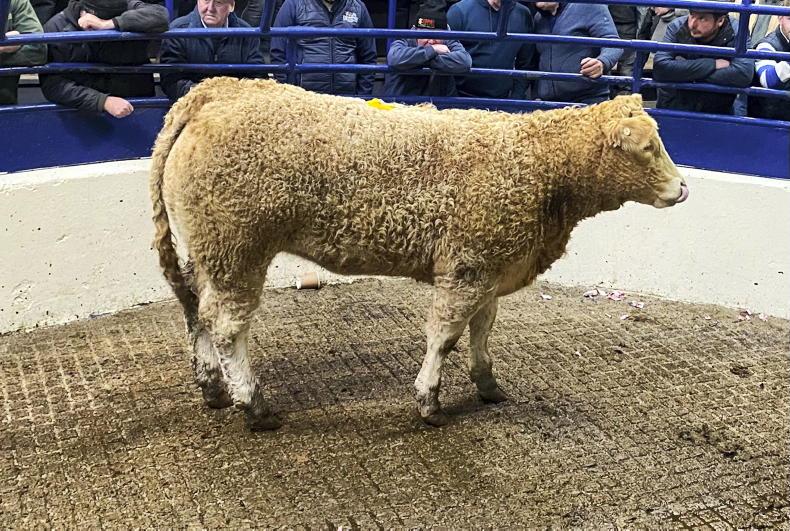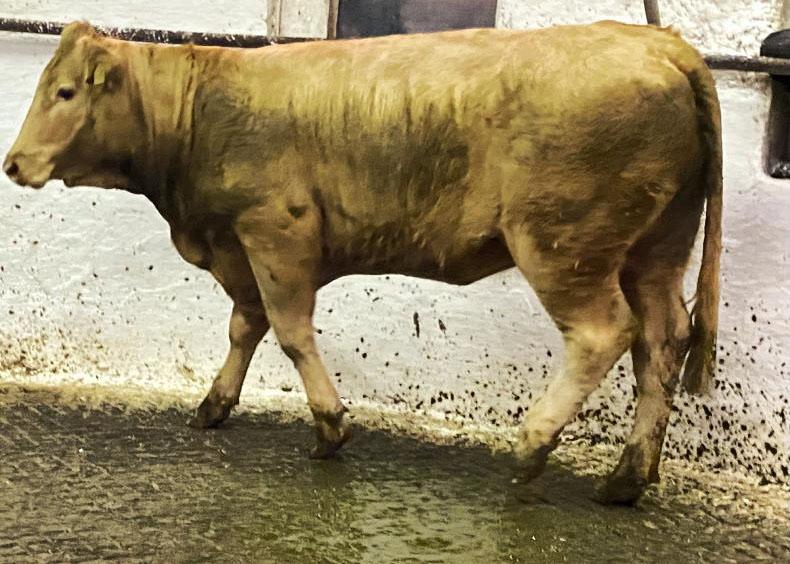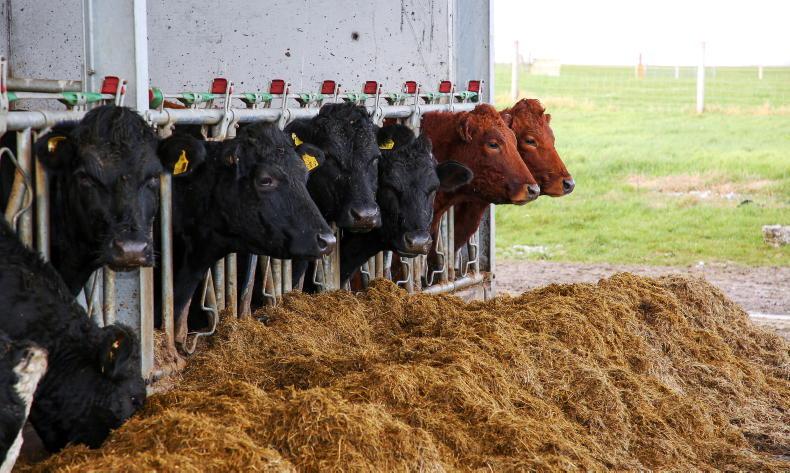Spring-born suckler calves generally remain with their dams at pasture until they are weaned, usually between five and nine months of age.
Weaning stress has an adverse effect on the immune system, making calves more susceptible to disease, particularly pneumonia.
It is essential for the health and performance of these calves to minimise stress around weaning by having good handling facilities and by using proper weaning procedures.
Common causes and clinical signs of pneumonia in weanlings
A combination of stress and infectious agents like viruses and bacteria contribute to the increased likelihood of a pneumonia outbreak in weanlings.
Calves may be infected with more than one of these viruses and bacteria at a time.
The viruses that most commonly cause pneumonia are Bovine Herpesvirus 1 (BoHV1); the virus that causes Infectious Bovine Rhinotracheitis (IBR); Bovine Respiratory Syncytial Virus, (BRSV) and Parainfluenza Virus 3 (PI3V).
The bacteria involved include Mycoplasma bovis, Pasteurella multocida, Mannheimia haemolytica and Histophilus somni. Early diagnosis is essential for the successful treatment of pneumonia, as is good stockmanship.
This requires calves to be observed on a regular basis post-weaning.
Initial signs of pneumonia can be non-specific and include being off-form, dullness, reduced feed intake and lack of gut fill. Other signs may include fever (over 39.5°C), increased respiratory rate, watery nasal discharge and severe breathing difficulties.
By the time these later signs are apparent, the disease is advanced and treatment is less likely to be successful as damage to the lungs may be irreversible.
If you suspect weanling pneumonia is present, consult your vet for advice on diagnosis and treatment.
If you spot pneumonia in a group of cattle, other cattle within that group will be more susceptible to contracting pneumonia, so extra vigilance is required.
Pneumonia prevention
Pneumonia around the time of weaning has the potential to cause significant performance losses and even death in weanlings.
The risk of pneumonia is increased by factors such as poor weaning management, sheds with poor ventilation and additional stressful events around weaning – including mixing newly bought animals with homebred animals.
Quarantine
If you are buying weanlings, quarantine new animals after arrival, ideally outdoors or in well ventilated buildings for at
least four weeks before mixing with
homebred animals.
Vaccines are available against the most common viruses and bacteria that cause pneumonia.
Time is required to build up protection and vaccine courses should be completed before the time of weaning and housing to have the best effect.
For most vaccines this means beginning the vaccination programme at least six weeks before the planned date of weaning. In some situations, vaccination may also be used in the face of a viral respiratory disease outbreak.
Best practice in handling, administration and storage of vaccines
Always check with your vet prior to vaccine administration. Allow the vaccine to reach ambient temperature (15C-25C). Always read and make sure you understand the manufacturer’s instructions before use. Record all vaccines given to animals, eg date, animal number, type of vaccine used in your own animal remedy records.Never mix vaccines or administer different vaccines within 14 days of each other unless the instructions state otherwise.Don’t use the same needle or
syringe for different vaccines.For vaccines given intra-nasally, the supplied applicators are designed to break up the vaccine into minute droplets, so it is important to use it to disperse the vaccine in the nasal chambers.If not vaccinating all animals, separate vaccinated groups from unvaccinated groups that need to remain free from viral antibodies. This is necessary to avoid the possible spread of live vaccine virus from vaccinated animals, which may excrete the virus for up to five days following intra-nasal vaccination. Separating these groups will avoid accidental contact with the vaccine virus resulting in their becoming antibody positive. For some vaccines, eg for IBR, this would prevent their entry to a semen collection centre or bull testing station.Do not use vaccines with
immuno-suppressive products such as corticosteroids. If there is any doubt about other animal remedies, use on a case-by-case basis in consultation with your veterinary practitioner.Always store vaccines in a fridge at 2oC to 8oC.Always check the shelf-life of the product and never use expired vaccines. Once opened (seal broken), check the longevity of the product (usually hours).Using some vaccines in the face of a disease outbreak can be questionable in that vaccines may not trigger an immune response if the animal has a high temperature. Parasite control: lungworm (hoose) infection in adult cattle and calves can give rise to husky coughing depending on the grazing management and dosing regime on the farm. Roundworms in young stock will increase if animals are not dosed appropriately. Fly control is also important. Vaccinations: in preparation for the autumn, review vaccination protocols with your vet. Administer a broad-based clostridial vaccine if there has been a past issue on-farm.Tetany prevention: lower grass supplies and increased stress around weaning can place suckler cows at an increased risk to tetany. Make sure you are supplementing cows with some form of magnesium to prevent tetany.
Spring-born suckler calves generally remain with their dams at pasture until they are weaned, usually between five and nine months of age.
Weaning stress has an adverse effect on the immune system, making calves more susceptible to disease, particularly pneumonia.
It is essential for the health and performance of these calves to minimise stress around weaning by having good handling facilities and by using proper weaning procedures.
Common causes and clinical signs of pneumonia in weanlings
A combination of stress and infectious agents like viruses and bacteria contribute to the increased likelihood of a pneumonia outbreak in weanlings.
Calves may be infected with more than one of these viruses and bacteria at a time.
The viruses that most commonly cause pneumonia are Bovine Herpesvirus 1 (BoHV1); the virus that causes Infectious Bovine Rhinotracheitis (IBR); Bovine Respiratory Syncytial Virus, (BRSV) and Parainfluenza Virus 3 (PI3V).
The bacteria involved include Mycoplasma bovis, Pasteurella multocida, Mannheimia haemolytica and Histophilus somni. Early diagnosis is essential for the successful treatment of pneumonia, as is good stockmanship.
This requires calves to be observed on a regular basis post-weaning.
Initial signs of pneumonia can be non-specific and include being off-form, dullness, reduced feed intake and lack of gut fill. Other signs may include fever (over 39.5°C), increased respiratory rate, watery nasal discharge and severe breathing difficulties.
By the time these later signs are apparent, the disease is advanced and treatment is less likely to be successful as damage to the lungs may be irreversible.
If you suspect weanling pneumonia is present, consult your vet for advice on diagnosis and treatment.
If you spot pneumonia in a group of cattle, other cattle within that group will be more susceptible to contracting pneumonia, so extra vigilance is required.
Pneumonia prevention
Pneumonia around the time of weaning has the potential to cause significant performance losses and even death in weanlings.
The risk of pneumonia is increased by factors such as poor weaning management, sheds with poor ventilation and additional stressful events around weaning – including mixing newly bought animals with homebred animals.
Quarantine
If you are buying weanlings, quarantine new animals after arrival, ideally outdoors or in well ventilated buildings for at
least four weeks before mixing with
homebred animals.
Vaccines are available against the most common viruses and bacteria that cause pneumonia.
Time is required to build up protection and vaccine courses should be completed before the time of weaning and housing to have the best effect.
For most vaccines this means beginning the vaccination programme at least six weeks before the planned date of weaning. In some situations, vaccination may also be used in the face of a viral respiratory disease outbreak.
Best practice in handling, administration and storage of vaccines
Always check with your vet prior to vaccine administration. Allow the vaccine to reach ambient temperature (15C-25C). Always read and make sure you understand the manufacturer’s instructions before use. Record all vaccines given to animals, eg date, animal number, type of vaccine used in your own animal remedy records.Never mix vaccines or administer different vaccines within 14 days of each other unless the instructions state otherwise.Don’t use the same needle or
syringe for different vaccines.For vaccines given intra-nasally, the supplied applicators are designed to break up the vaccine into minute droplets, so it is important to use it to disperse the vaccine in the nasal chambers.If not vaccinating all animals, separate vaccinated groups from unvaccinated groups that need to remain free from viral antibodies. This is necessary to avoid the possible spread of live vaccine virus from vaccinated animals, which may excrete the virus for up to five days following intra-nasal vaccination. Separating these groups will avoid accidental contact with the vaccine virus resulting in their becoming antibody positive. For some vaccines, eg for IBR, this would prevent their entry to a semen collection centre or bull testing station.Do not use vaccines with
immuno-suppressive products such as corticosteroids. If there is any doubt about other animal remedies, use on a case-by-case basis in consultation with your veterinary practitioner.Always store vaccines in a fridge at 2oC to 8oC.Always check the shelf-life of the product and never use expired vaccines. Once opened (seal broken), check the longevity of the product (usually hours).Using some vaccines in the face of a disease outbreak can be questionable in that vaccines may not trigger an immune response if the animal has a high temperature. Parasite control: lungworm (hoose) infection in adult cattle and calves can give rise to husky coughing depending on the grazing management and dosing regime on the farm. Roundworms in young stock will increase if animals are not dosed appropriately. Fly control is also important. Vaccinations: in preparation for the autumn, review vaccination protocols with your vet. Administer a broad-based clostridial vaccine if there has been a past issue on-farm.Tetany prevention: lower grass supplies and increased stress around weaning can place suckler cows at an increased risk to tetany. Make sure you are supplementing cows with some form of magnesium to prevent tetany. 









SHARING OPTIONS